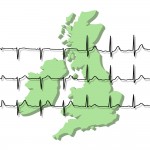
Integration and partnership between providers and the public sector is key to meeting the QIPP challenge. NHS commissioners will be focusing on building closer and cost effective relationships with Council colleagues to address the needs of adults, children and young people, families with complex needs.
Aiming to deliver Better for Less, the Local Government Association has updated its national shared services compendium and map, research to promote an understanding of the number, variety and depth of shared services arrangements going on across the country. In addition it has enabled a total efficiency figure to be attributed to shared services nationally for the first time.
Key findings
219 councils across the country are engaged in 143 shared service arrangements resulting in £156.5 million of efficiency savings.
The map has been made available to encourage councils and their partners to explore shared service options before embarking on new services. To that end the LGA is making the source data available.
References
National map of shared services, launched January 2012
More about the Local Government Association (LGA)
Reduction in council funding means that the sector must remodel services to reduce costs while maintaining the level of service. The LGA has identified that “unit costs in these services vary significantly.” It proposes that:
There is strong evidence to indicate that transforming services to be more preventative and better targeted is the starting point in reducing the cost base. Leading councils have also found significant savings by strengthening commissioning arrangements
The LGA’s approach is based on improving the commissioning of services, greater prevention, closer working with partners and embedding known good practice.
One topic of particular interest to commissioners is the LGA’s coverage of shared services which incorporates a case study of sharing management and services across the public sector in Herefordshire.
